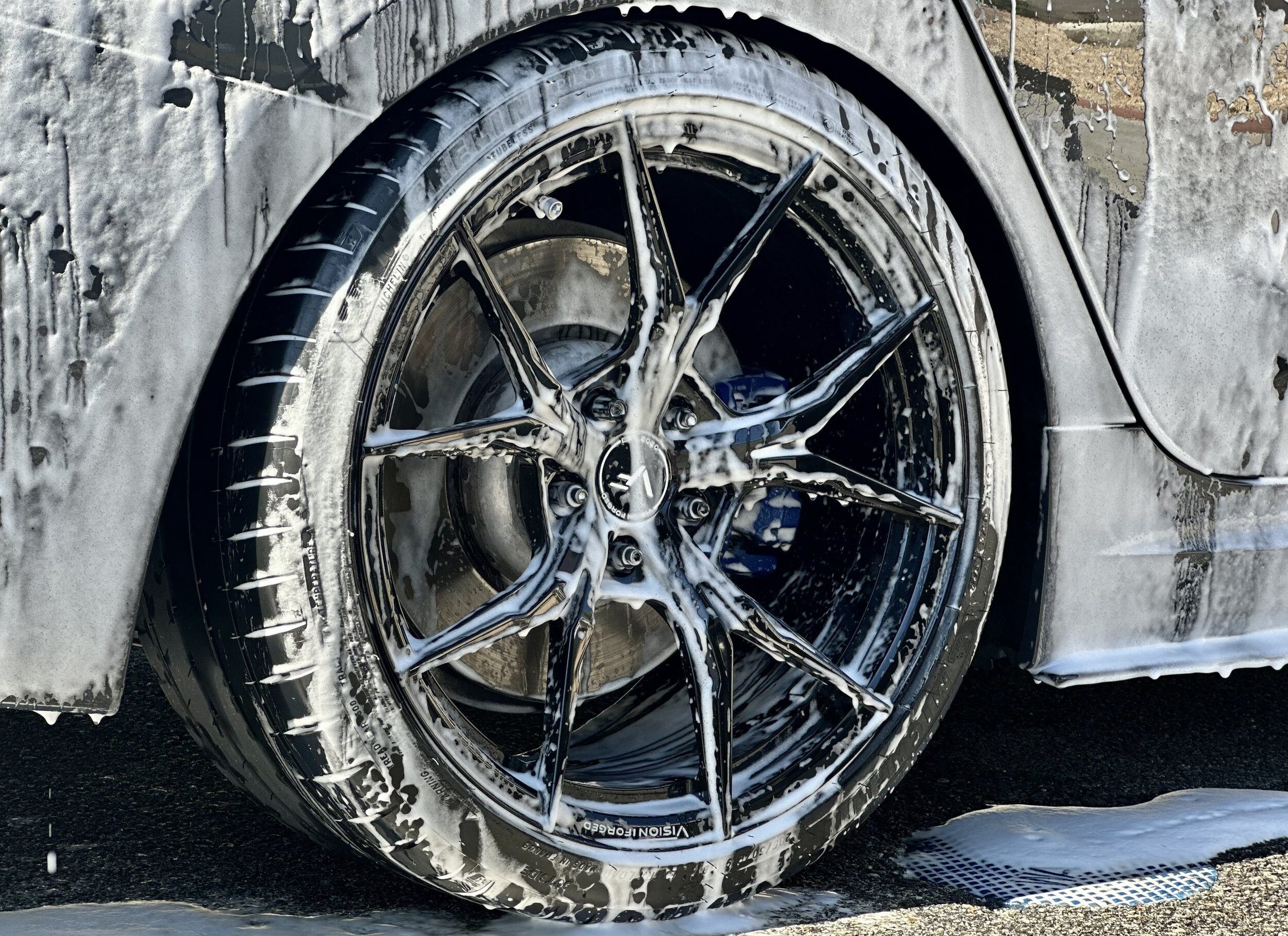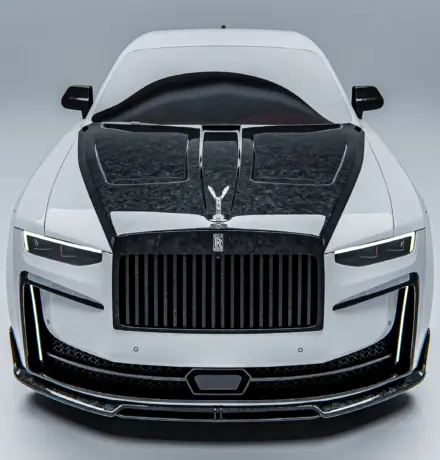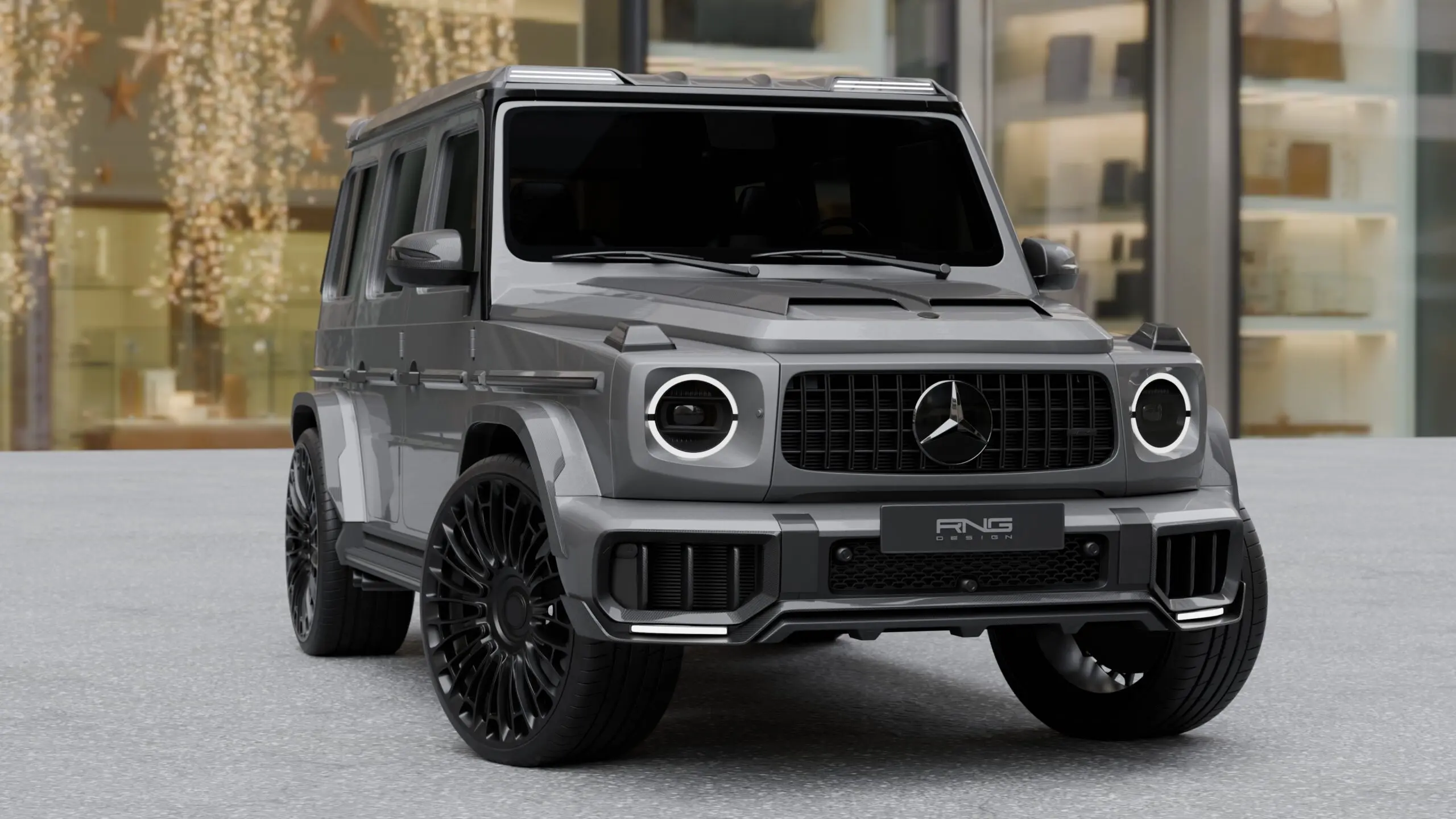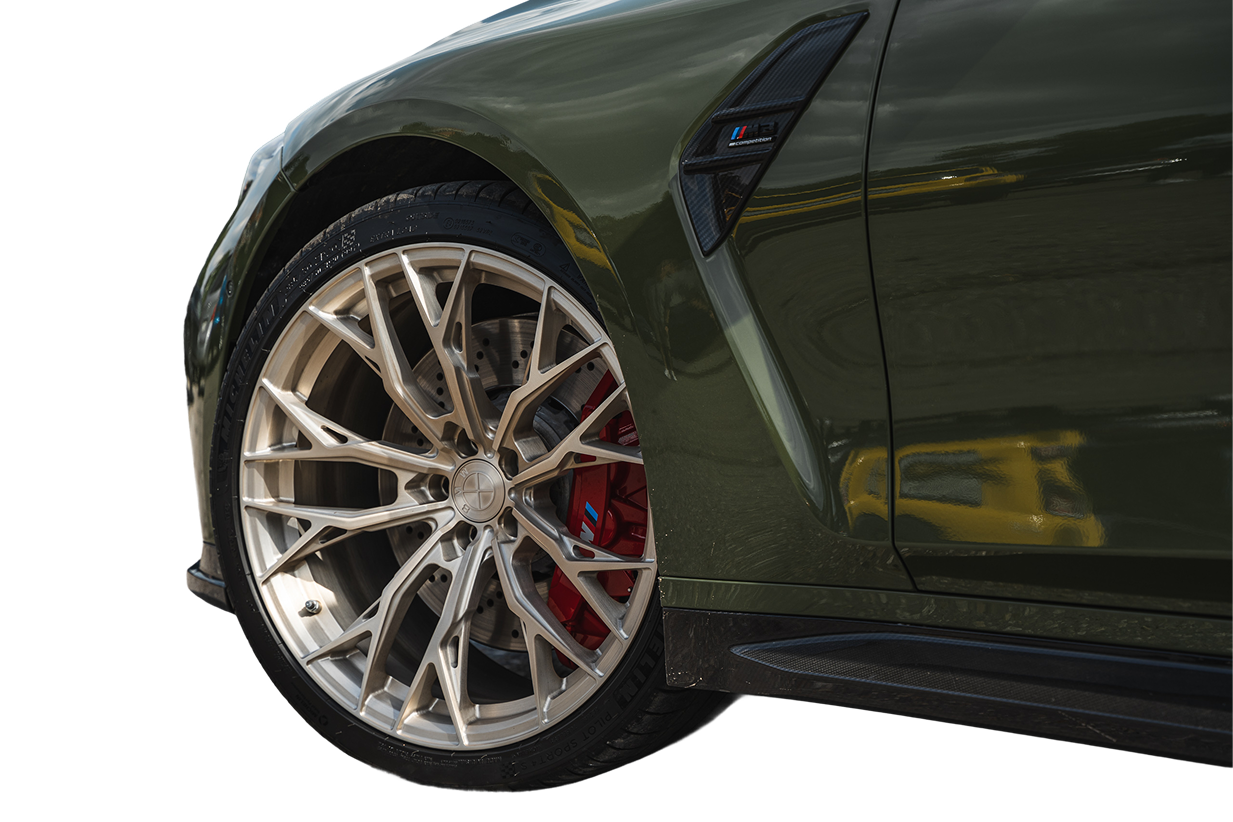Contents
Forged wheels are a type of automotive wheel rims created using a forging process. During this process, aluminum is subjected to high pressures and temperatures to transform it into a strong and lightweight disc. Unlike cast wheels, which are made by pouring molten metal into a mold, forged wheels are formed through mechanical action on the billet. This method provides improved mechanical properties of the product.
Production Technology
The manufacturing process begins with a billet of high quality aluminum alloy. The billet is heated to a high temperature and then subjected to repeated impact with a powerful press. As a result of this impact, the metal is compacted, which increases its strength, reduces the number of micropores, cracks.
After forging passes the stages of machine processing, including turning, milling work to give it the final shape, dimensions. Next, it undergoes heat treatment to improve its mechanical properties, increase corrosion resistance. The final stage is surface finishing: grinding, polishing, applying a protective coating.

Advantages and disadvantages
Advantages
- Forged wheels have high strength due to the forging process, which eliminates micropores, cracks in the material.
- Due to the reduced mass compared to cast analogs, such disks contribute to improving car controllability, reducing fuel consumption.
- High resistance to mechanical damage makes forged wheels less susceptible to deformation during impacts.
- Forged aluminum has good thermal conductivity, which contributes to effective cooling of brakes.
- The disks can have intricate designs due to precise machining.
Disadvantages
- The high cost of production makes such disks much more expensive than cast analogs.
- If damaged, such a disk can be difficult to restore to its original state due to the peculiarities of the material.
- Not all manufacturers offer a large selection of models.
What forged wheels to give preference to.
The choice depends on many factors:
- Manufacturer. Preference should be given to proven manufacturers with a good reputation in the market of auto components.
- Purpose of the vehicle. For sports cars or off-roaders it is worth choosing models with increased strength to withstand aggressive operating conditions.
- Design. It is important to take into account the aesthetic preferences of the car owner, because appearance plays not the last role.
- Dimensions. Disks should correspond to the technical parameters of the car (diameter, rim width, departure).
- Coating. The presence of a quality protective coating will increase the service life of the product and provide its attractive appearance for a long time.

Classification
Forged wheels are high-tech products used in the automotive industry to improve performance, aesthetic appeal of vehicles. Forged wheels are made by forging, which ensures their high strength, durability, lightness compared to cast models. There are several types:
- One-piece forged wheels – are made from a single piece of metal. Are characterized by high strength, rigidity.
- Multi-component forged wheels – consist of several parts (center part and rim), which are connected using fasteners. Provide the possibility of replacing individual parts, making the design easier.
Recommendations on the use of forged wheels
- Regularly inspect forged wheels for damage, cracks or deformation. Even minor damage can have serious consequences when driving.
- If it is necessary to store wheel sets, observe storage conditions – protect them from moisture, aggressive chemicals and mechanical damage.
- Installation should be carried out by professionals using specialized equipment to avoid misalignment or under-tightening of fasteners.
- Make sure that the tire size matches the size and type of rims used. Mismatches can lead to accelerated tire wear and increased stress on the vehicle suspension.
- Wheel balancing is important to prevent vibrations when driving the vehicle and to ensure even tire wear.

Maintenance of forged wheels
To extend the life of your forged wheels and maintain their appearance, you need to properly maintain them:
Cleaning:
- Use mild detergents and soft pile brushes to clean dirt, dust and road salt from the surface.
- Avoid the use of harsh chemicals (e.g. acids) that can damage the disk coating.
- Do not use abrasives or hard scrapers.
Corrosion protection:
- Regularly apply protective coatings (wax or special compounds) to the surface of the disks to protect against corrosion.
- In winter, it is especially important to remove road salt from the surface of the rims immediately after trips.
Repairs:
- If defects are detected, contact specialized services for repair or replacement of multi-piece disc elements.
- Never attempt to repair cracks or deformations yourself – this can lead to deterioration in performance.
Check stud tightening:
- Regularly check the condition of fasteners (nuts/bolts) for corrosion and proper tightening torque according to vehicle manufacturer’s recommendations.
Following these operation and maintenance recommendations will significantly extend the life of forged wheels and ensure safe driving. The quality of manufacturing of these parts makes them an indispensable choice for those who value reliability and aesthetic appeal in their vehicle.



















